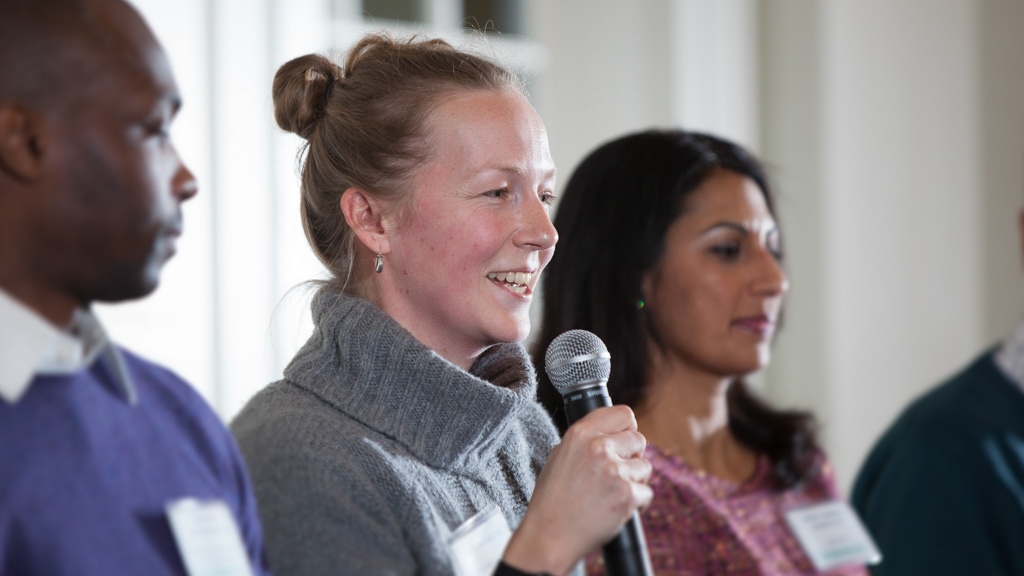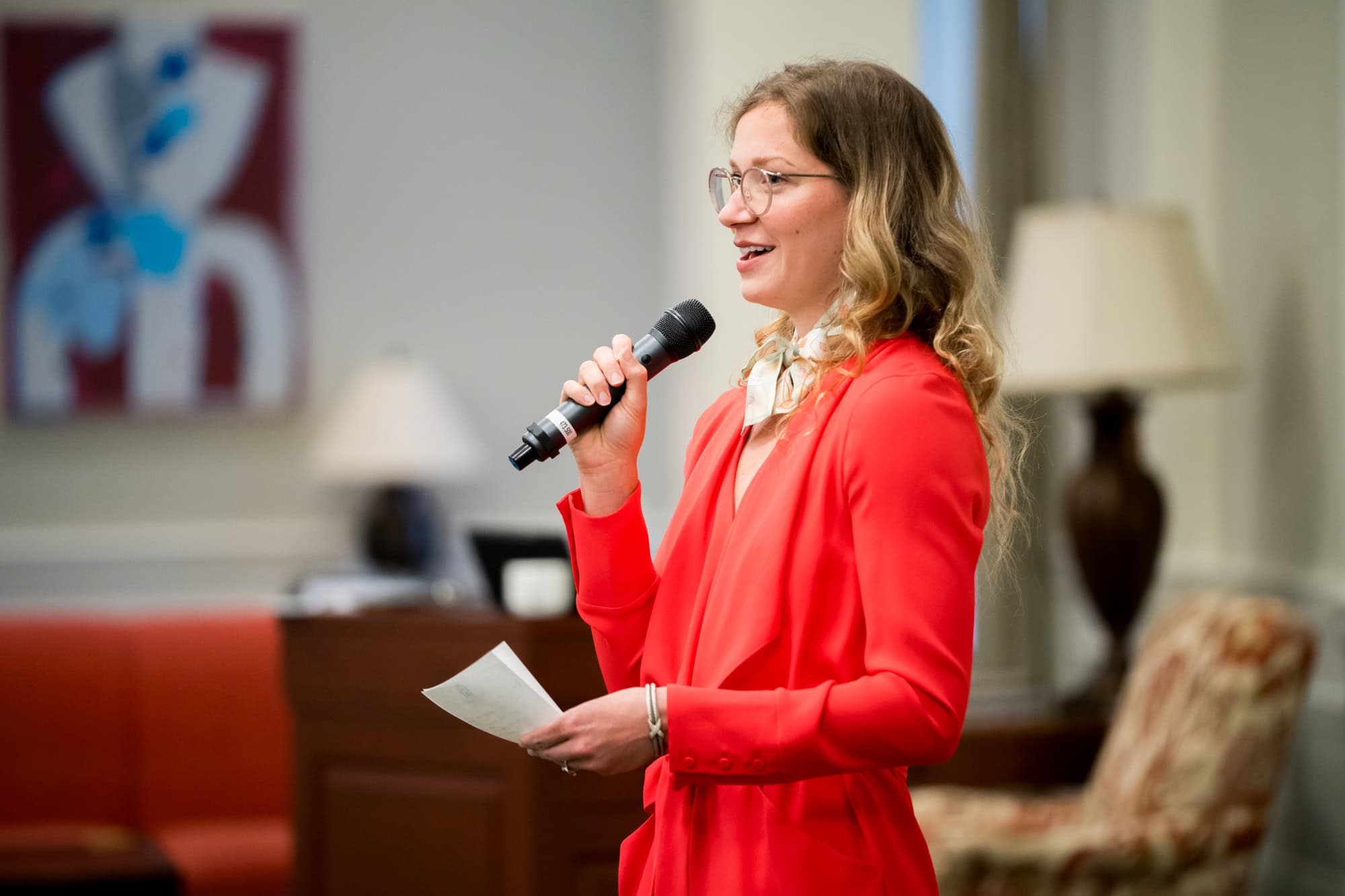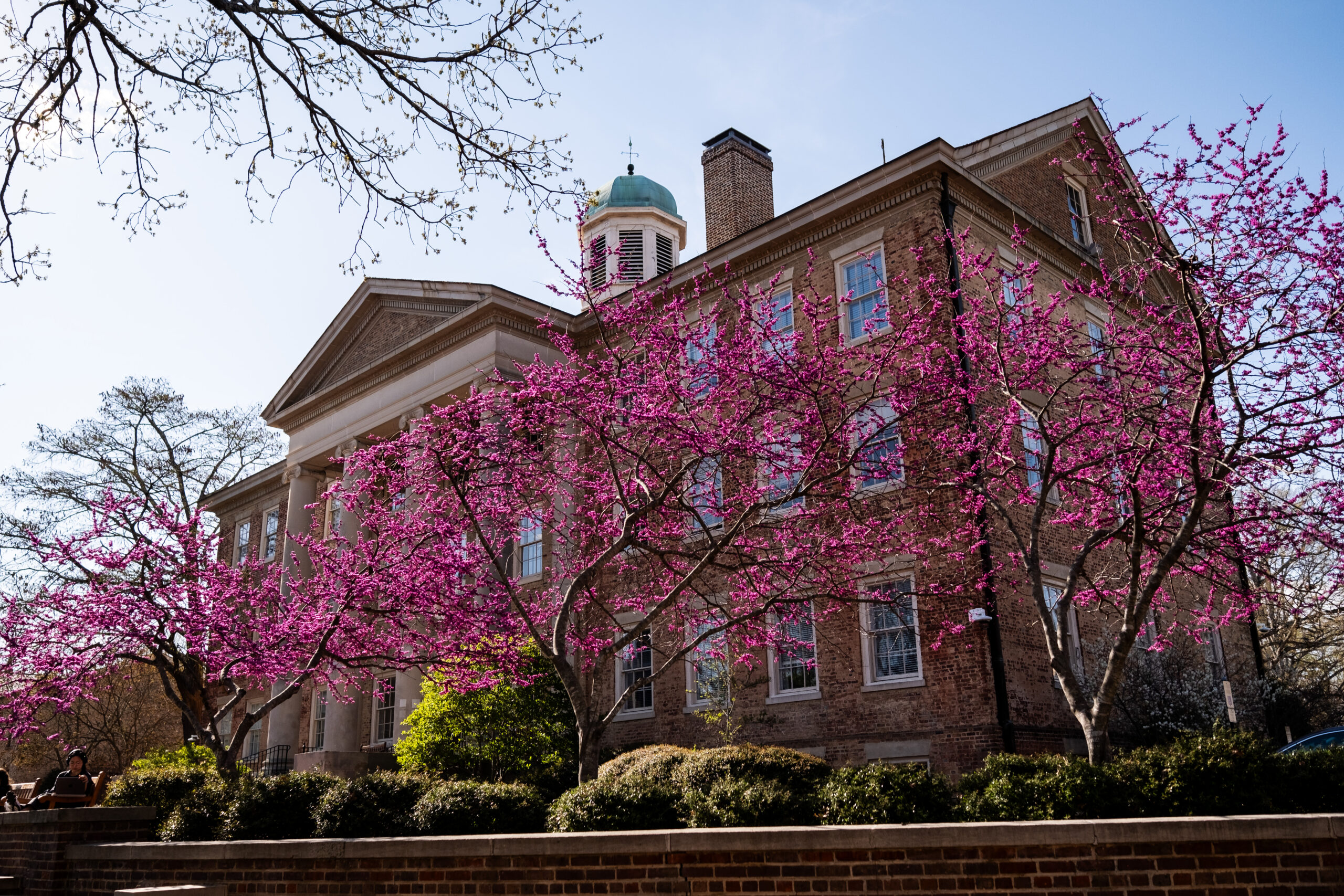
Kate Harris ’05
Kate Harris ’05, one of Canadian Geographic’s Top 10 Explorers, doesn’t like the label “explorer” because, for her, it carries a heavy legacy of colonialism and hegemony. As of August 2018, Kate is a published author—of a travel memoir titled Lands of Lost Borders. And Kate likes the label “writer.”
“Being a writer is really a license to be anything you want for a little while,” she says. “I love the fact that you get to be an explorer, a poet, an activist, a scientist, sort of whatever you want, depending on what themes you’re exploring through words. I love the freedom of that. I love that ‘writer’ is such a loose, encompassing label. It’s probably the only label I’m really happy having slapped on. It allows me to be a shape-shifter.”
And Kate is all of those things. At first, she was an aspiring astronaut. Then she was a Rhodes Scholar at Oxford. Then she was a graduate student at MIT. Then she was a long-distance biker, exploring the Silk Road on two wheels. Now she’s a writer promoting her first book and a conservationist working to protect the Earth’s wild spaces.
“I grew up wanting to be an old-school explorer and thought that wasn’t possible anymore in this world,” she says. “The Morehead-Cain summers showed me that you don’t have to go to another world to feel like you’re in an alien situation. I loved the thrill of being thrown into new countries and new contexts every summer. It basically widened my definition of what exploration is.”
Kate says the Program showed her the value of taking risks, of “leaping before you know how you’re going to land.” But for a Morehead-Cain, adventure is never just a blind leap of faith.
“The Morehead-Cain, in some ways, is this incredible safety net underneath you so that if you don’t land well, you’re still going to be okay,” she said. “You’ve been given a whole group of people who believe in you and what you’re capable of. That shouldn’t be a burden that weighs you down; it should be something that buoys you and empowers you and emboldens you to take those risks, and wander, get lost, and figure out who you really are.”
Kate says the Program made her branch out to study new topics as an undergraduate; for example, one semester she was torn between going to Chile to study astronomy or going to Mongolia to study Mongolian culture and history. At the time, she wanted to become an astronaut.
“I talked to Chuck and Megan, folks at the Foundation, and they were basically like, ‘If you’re going to spend the rest of your life doing science and space stuff, why not go to Mongolia for six months when you have the chance?’”
Kate points out that the Program itself takes a risk by encouraging its scholars try new things.
“I respect them for that,” she says. “I think that’s their most impressive quality as an institution.”
Kate considers her acceptance into the Program “an extraordinary stroke of luck.”
“I was a quirky candidate from the start, and the fact that they embraced that—it’s bold of them and so important that they look at other indicators beyond status quo markers of success.”
Kate’s identity as a Morehead-Cain Scholar continues to inspire her adventurous approach to life.
“They want you to give your wildest, truest expression of extraordinariness to the world, to live it out,” she says. “That’s what I saw those four years at Carolina—and everything that emerged from them—being about. The Morehead to me was absolutely transformative. It made possible everything that followed it.”


